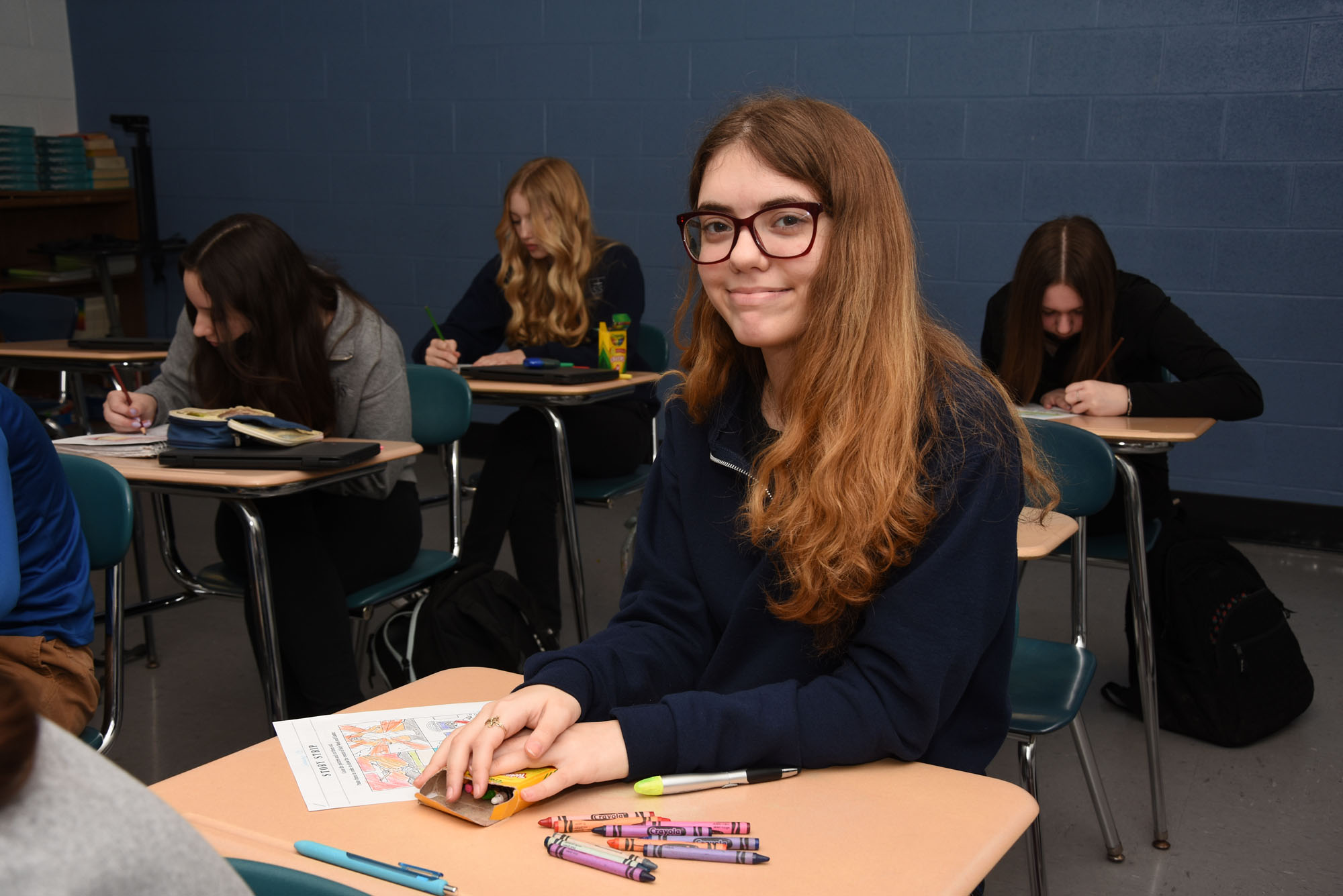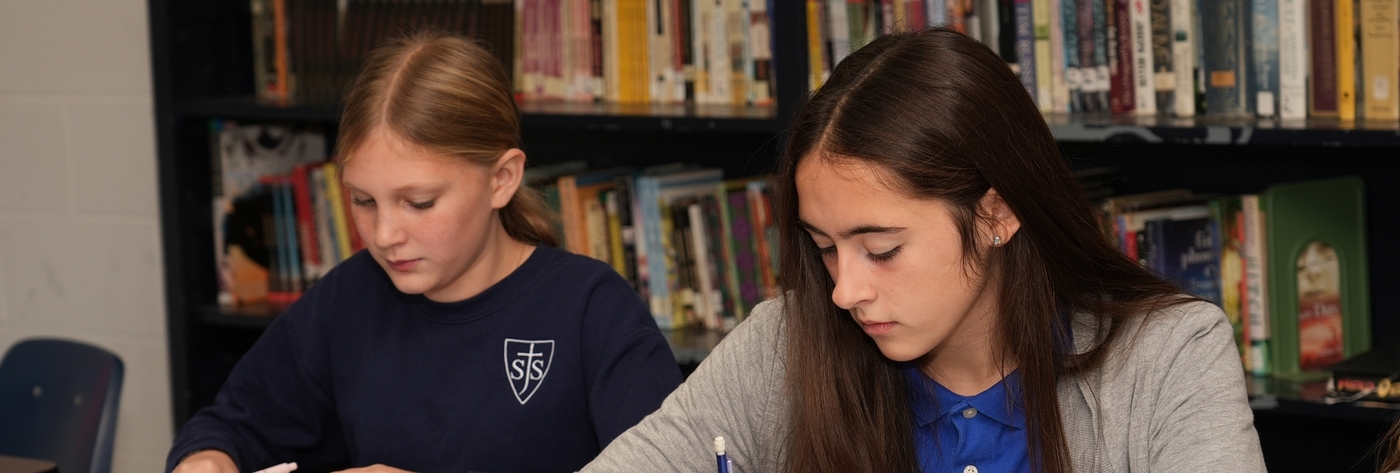Technology
At Saint John School, we recognize the vital role technology plays in today’s rapidly advancing world. Our commitment to responsible technology integration ensures that students gain the skills and digital literacy needed to thrive in the 21st century. This section outlines the tools, programs, and initiatives that support our students, parents, and staff.
⸻
Technology Infrastructure
Our state-of-the-art computer network and high-speed internet connectivity provide a seamless and reliable digital experience for students and staff across campus.
⸻
One-to-One Device Program
We operate a comprehensive One-to-One Device Program to support individualized learning at all grade levels:
• Kindergarten – Grade 2: Each student is assigned an iPad for in-classroom use.
• Grades 3 – 12: Each student is assigned a Chromebook. Students in grades 6–12 take their Chromebooks home daily.
All devices meet required educational specifications and are equipped with security measures and content filters to ensure safe and responsible use.
⸻
Digital Learning
Our curriculum actively integrates digital tools to enhance instruction and engagement.
Students benefit from:
• Online learning platforms
• Interactive educational resources
• Digital libraries and tools that foster creativity and critical thinking
⸻
Social Media and Technology in Education
Technology offers powerful educational benefits—supporting communication, collaboration, and creativity. Social media, when used responsibly, provides new avenues for learning and community building. However, it also presents unique challenges that can disrupt classroom focus and student well-being.
Scientific research confirms that multitasking, especially involving devices, diminishes learning. We teach our students that full attention—not divided focus—leads to greater success and stronger interpersonal skills. We also emphasize appropriate digital behavior and social awareness in the classroom.
⸻
A Smartphone-Free Learning Environment
Beginning in the 2025–2026 school year, Saint John School will become a smartphone-free campus during the academic day for all students in grades K–12.
This decision supports both academic performance and student well-being. When students are fully present—free from the distractions of smartphones and smartwatches—they are better able to connect with peers, engage with lessons, and develop meaningful habits of attention and respect.
Key goals of our smartphone-free policy include:
• Improving academic focus and class participation
• Encouraging face-to-face communication and relationship building
• Reducing social media pressures and digital distractions
• Promoting healthier habits and balanced school experiences
We believe this policy strengthens our Catholic values, enhances classroom learning, and fosters a stronger school community.
⸻
Technology Integration & Teacher Support
Our faculty integrates technology thoughtfully into instruction through the use of:
• Interactive whiteboards
• Multimedia presentations
• Educational apps and digital resources
Ongoing professional development ensures our teachers stay current with the latest educational technology trends and tools.
⸻
Cybersecurity & Digital Citizenship
The safety and security of our students online is a top priority. Our cybersecurity measures ensure a protected digital environment, while our digital citizenship curriculum teaches students how to:
• Use technology responsibly and ethically
• Practice proper online etiquette
• Safeguard their personal information
A key component of our commitment to academic integrity is our use of Turnitin, a plagiarism and AI-detection platform. All major written assignments are submitted through Turnitin, allowing students to evaluate their work, strengthen their research and citation skills, and uphold our school’s standards of originality and fairness.
⸻
At Saint John School, we believe technology should empower—not distract—from learning. We are proud to provide a safe, modern, and values-driven digital environment that helps students grow into responsible, ethical, and successful digital citizens.


